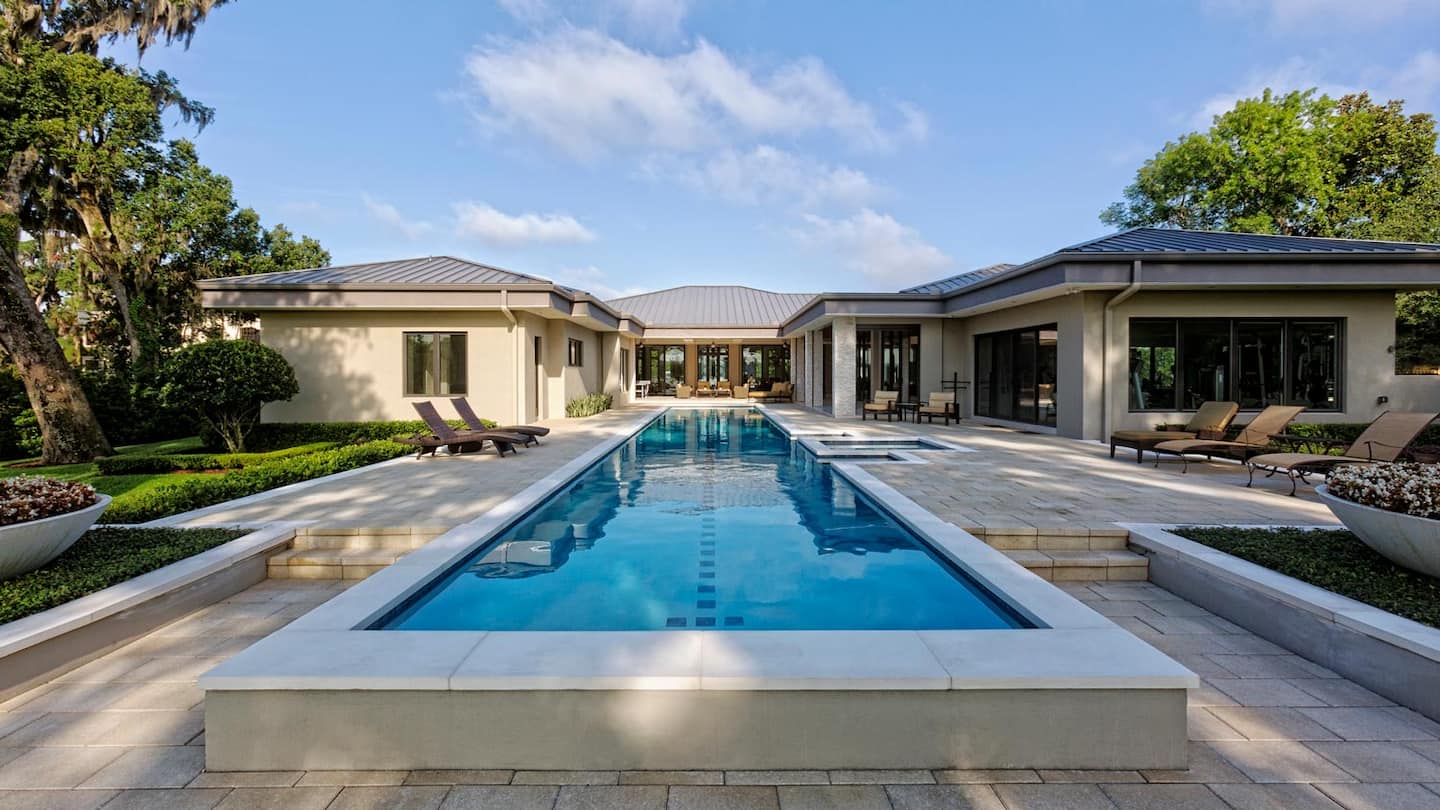5 Questions to Ask About Fiberglass Pool Installation
These questions can help you plan for a pool that makes a real splash


The average fiberglass pool costs around $34,000. This is no small investment, so if you’re planning to take the plunge, you want to make sure you do things right. That involves finding a qualified contractor and getting on the same page about the project. To help get you started, here are five questions to ask your fiberglass pool installer.
1. When will you have this project completed?
The timeline is one of the most important things to discuss with your contractor. Luckily, fiberglass pools are quicker to install than concrete pools, but it can still take 8 to 12 weeks on average. If you hit a snag, that timeline will stretch even longer.
Either way, your contractor will need to fit you into their schedule. The best time to buy a pool is usually during the off-season. If you can wait until fall, when they’re less likely to be booked up, your contractor may be willing to cut a deal.
2. What type of pools do you install?
Not all pools are the same. Your pool installer should be familiar with the type of pool you want to install—whether it’s a spool, indoor pool, plunge pool, or saltwater pool. This is important because the installation processes differ. For example, an indoor pool has certain ventilation requirements. A saltwater pool requires materials that won’t corrode with the salinity.
It’s also a good idea to discuss add-ons, upgrades, and extra features. Your contractor will likely have a few go-to options that can make your pool shine.
3. What brands and models of fiberglass pools do you recommend?
Fiberglass pools are prefabricated, and there are a ton of different brands and models on the market. Some are higher-end with a wider range of features, and some are more affordable and basic. Your pool installer may have a preferred manufacturer and even be able to score a discount on certain models. Weigh the pros and cons to find the right fit.
4. Can you provide examples of similar projects you’ve completed?
You’ll always want to make sure your contractor is licensed and insured, but there’s a certain proof of quality in a portfolio. Check out your pool installer’s previous work to understand their style. Finishing touches like landscaping and pool decks can really differ from contractor to contractor. If you like what you see, odds are you’ll be pleased with the final product.
5. What considerations do fiberglass pools need in my climate?
In colder climates, winterizing your pool is a key part of maintenance. If you don’t do it correctly, your pool will be more vulnerable to damage, such as cracks from freezing. Fiberglass pools tend to be a bit easier to maintain than concrete pools, but your contractor can still help you choose the right pool cover, maintenance plan, and overall care strategy for your climate.





- Swimming Pool Installation
- Pool Liner Replace & Install Companies
- Above Ground Pool Contractors
- Pool Remodeling Companies
- Inground Pool Companies
- Pool Removal Companies
- Inground Pool Repair Companies
- Sauna Companies
- Hot Tub Companies
- Sauna Repair
- Fiberglass Pools
- Pool Designers
- Pool Pump Repair
- Pool Closing Services
- Solar Pool Heater Installers









